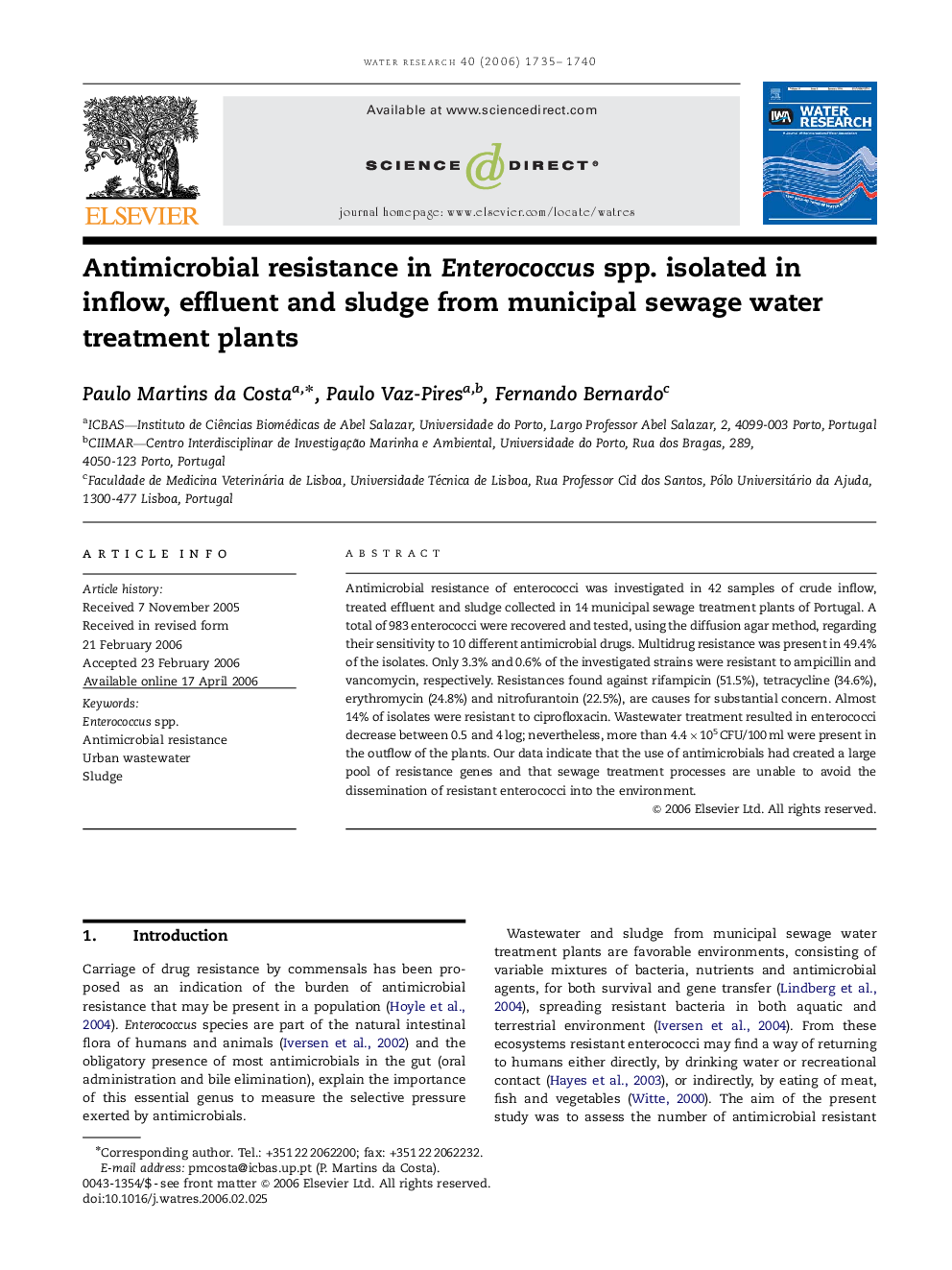| Article ID | Journal | Published Year | Pages | File Type |
|---|---|---|---|---|
| 4486456 | Water Research | 2006 | 6 Pages |
Antimicrobial resistance of enterococci was investigated in 42 samples of crude inflow, treated effluent and sludge collected in 14 municipal sewage treatment plants of Portugal. A total of 983 enterococci were recovered and tested, using the diffusion agar method, regarding their sensitivity to 10 different antimicrobial drugs. Multidrug resistance was present in 49.4% of the isolates. Only 3.3% and 0.6% of the investigated strains were resistant to ampicillin and vancomycin, respectively. Resistances found against rifampicin (51.5%), tetracycline (34.6%), erythromycin (24.8%) and nitrofurantoin (22.5%), are causes for substantial concern. Almost 14% of isolates were resistant to ciprofloxacin. Wastewater treatment resulted in enterococci decrease between 0.5 and 4 log; nevertheless, more than 4.4×105 CFU/100 ml were present in the outflow of the plants. Our data indicate that the use of antimicrobials had created a large pool of resistance genes and that sewage treatment processes are unable to avoid the dissemination of resistant enterococci into the environment.
